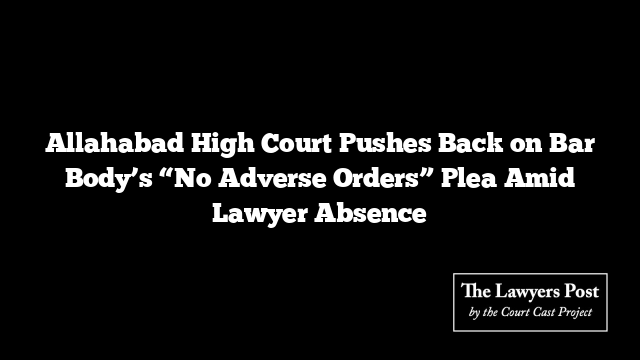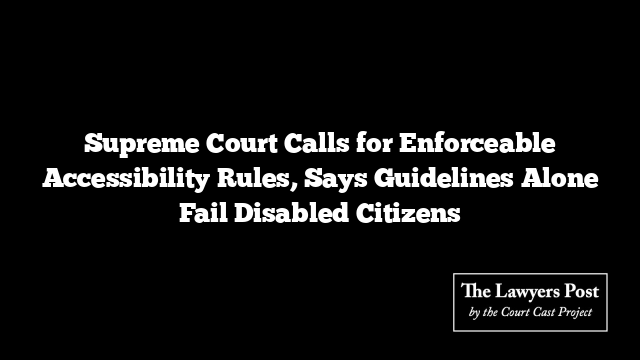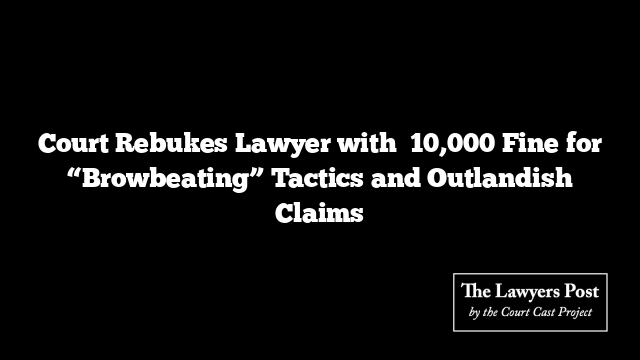In a firm stance, the Allahabad High Court recently voiced its disapproval of a request from the High Court Bar Association (HCBA) asking the court to withhold issuing adverse rulings in cases where lawyers were abstaining from work. The HCBA’s letter, which was presented by a representative without a formal resolution, sparked an unreserved response from the court, underscoring the impropriety of such requests made on behalf of only a select few within the Bar.
Justice Ajit Kumar highlighted the significance of the court’s obligations, pointing out that halting proceedings on short notice dismisses the value of public time, resources, and the judicial mandate for a speedy justice system. The judge clarified that exceptions for “no adverse order” requests may only be considered under compelling circumstances, such as national emergencies or natural disasters—not personal conveniences or localized traditions.
“It is unfortunate to see the functioning of a constitutional court held up without due regard to the responsibilities the court has toward public service. The operation of the court is subject to formal rules, and its schedule of vacations and holidays is well-planned to address genuine needs,” the court emphasized.
The court further outlined that, moving forward, any similar requests from the Bar must come with explicit resolutions by the Bar Association, ideally with a consensus from its Executive Body. This stipulation is intended to ensure that no individual or small group within the Bar can unilaterally interfere with the judicial process on behalf of others.
On this occasion, the HCBA had requested the court not to pass adverse orders from November 7-9, citing that many advocates were unavailable due to personal religious observances. Justice Kumar responded that while individual attorneys could request adjournments for valid personal reasons, it would be unreasonable to disrupt court operations for such matters collectively.
The case at hand had already experienced an attorney absence during a previous hearing, with the petitioner’s counsel urging a timely resolution. Although the court granted a single adjournment, it specified that no further delays would be tolerated.





